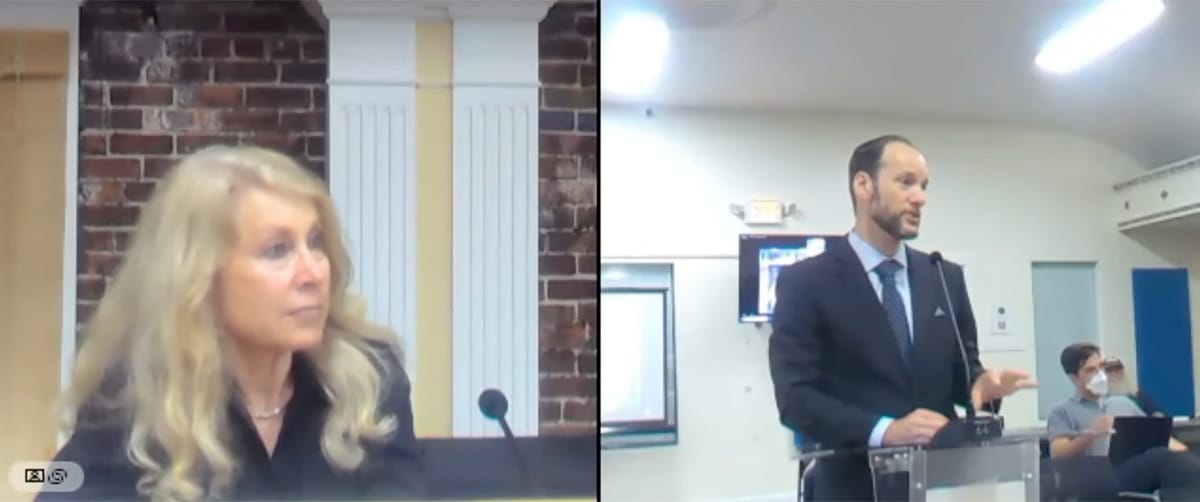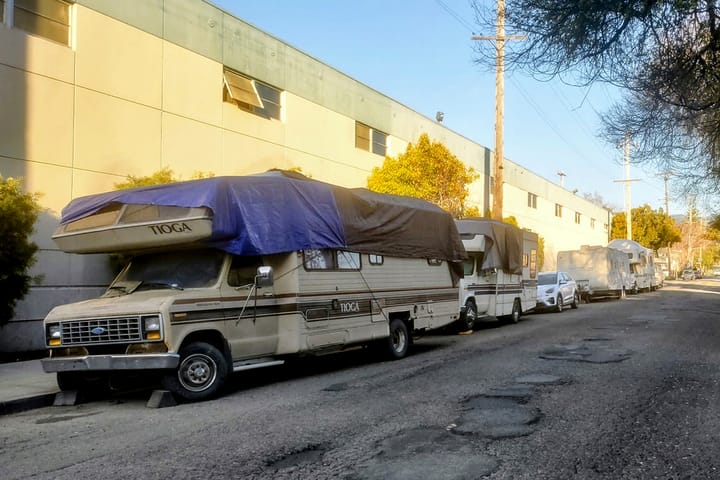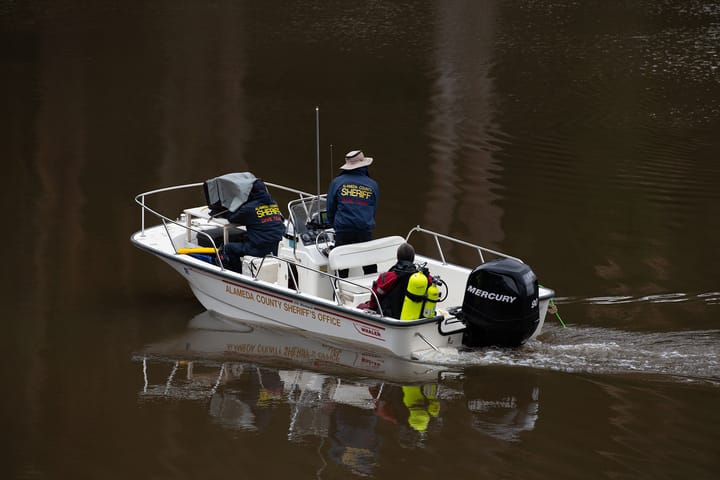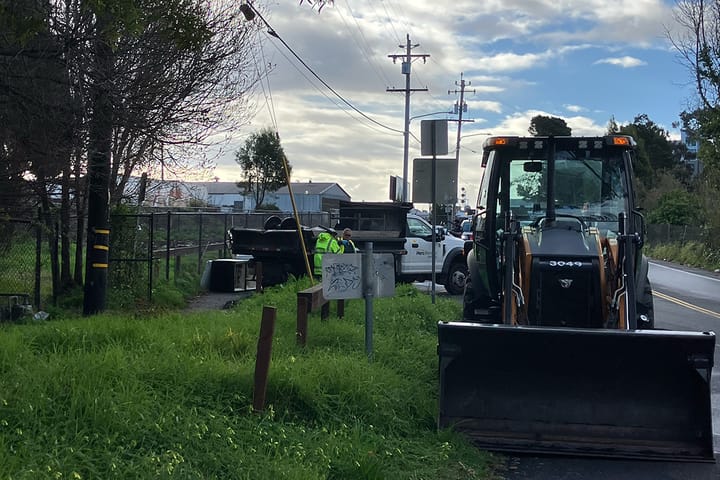City officials might actually let Berkeley police get drones
A Berkeley City Council vote on drones could come by the end of the year.

After years of resistance, Berkeley is looking at joining neighboring law enforcement agencies in letting its police department have drones.
City officials have previously voted strongly against an in-house Berkeley police drone program — with a narrow carve-out for "mutual aid" requests from other agencies in some extenuating circumstances.
That may now be changing, with a recent proposal from West Berkeley Councilman Terry Taplin.
Drones, he writes, are "emerging as tools with the potential to significantly enhance public safety operations, emergency response capabilities, and resource efficiency."
Citing San Francisco, Richmond, Alameda County and Santa Monica, to name a few, Taplin says "Many jurisdictions … have implemented such programs to reduce response times, improve situational awareness, and increase officer and community safety."
The item also cites "constrained departmental resources" — e.g. endemic short staffing at the Berkeley Police Department — as a primary consideration as officials decide whether to move forward on the proposal.
Read more about policing in Berkeley.
Taplin argues that drone deployments have "successfully protected the lives of community members, suspects, and officers," adding that "reliance on outside agencies restricts availability" and "creates unpredictable costs."
To "realize the full benefits of drone technology," Taplin writes, "Berkeley should move toward acquiring its own systems."
Berkeley police used drones at least 5 times in 2024
According to Berkeley's most recent Surveillance Technology Report, which was published late last year, BPD got drone assistance from the Oakland, Concord and Danville police in 2024 (through September) in several high-risk warrant operations, including homicide and shooting investigations; to pursue suspects who pistol-whipped a 2-year-old boy; and to track down an armed catalytic converter suspect.
BPD used drones five times over that period, in Berkeley and other local jurisdictions, and "received no complaints" about their deployment, police said.
Berkeley police have said that drones, aka "Unmanned Aerial Systems" or UAS, can be "used to search properties before officers [enter]. This allows officers to see video from the UAS and confirm a suspect is not waiting inside with a weapon. By sending the UAS in before officers, the risk of a confrontation that could result in death or serious injury to the suspect, others inside the house and officers, is significantly reduced."
The Taplin item — the first step in what could be a long process — asks the city manager to "evaluate the feasibility of a drone program to assess its technical, legal, and financial dimensions, as well as its potential benefits and risks in Berkeley," noting that multiple city departments could benefit from the program in terms of "disaster response, infrastructure inspection, and environmental monitoring."
Any assessment would also look at the potential cost of running such a program.
At a recent agenda committee meeting, council members Rashi Kesarwani and Mark Humbert were added to the Taplin item as co-sponsors.
It will now go to council's Public Safety Policy Committee for further review before making its way back to the full Berkeley City Council for a vote.
That could happen before the year is out.
Chesa Boudin: Drone technology "is here to stay"

The city's Police Accountability Board briefly took up the drone issue at its Sept. 17 meeting, voting to "partner with" UC Berkeley's Criminal Law & Justice Center, run by Chesa Boudin, to take a closer look.
"I feel like we should get ahead of this one," said board member Kitty Calavita. "The train has already started moving forward. I think we can get ahead of it, and get some idea of what pros and cons are."
(This week, The Scanner reviewed a recording of the meeting to learn what happened.)
Boudin, who served briefly as San Francisco district attorney before being recalled in 2022, had presented to the board earlier in the night about a different issue.
When he was done, board member Juliet Leftwich asked him to opine on drones, describing them as "one of those emerging technologies that presents a lot of complicated issues."
Boudin — who cautioned first and foremost that he was not a drone expert — took a nuanced approach to the question.
He said San Francisco police had made a strong case for drone use, particularly when tracking high-risk suspects, given that the technology can curtail the need for sometimes dangerous pursuits.
"Drones can dramatically reduce the risk, or the incentive even, for police to engage in a high-speed chase," he said. "If you have eyes in the sky that are relatively cheap and easy to deploy, much easier, for example, than a manned helicopter would be, then you can engage in a very low-risk pursuit."
"The suspect may not even know that they're being followed, so they may not drive recklessly," he added.
Boudin called drone use during police pursuits, or to avoid them altogether, "one of the best arguments" for them.
He also noted that a number of groups, including the Electronic Frontier Foundation, had raised privacy and civil liberty concerns about drones and said courts had yet to agree on whether evidence collected by drone was admissible.
And he said those issues have become even more pressing within the context of local agencies potentially sharing footage with ICE.
Boudin said any drone program crafted in Berkeley should include "necessary guardrails" along with "necessary transparency and disclosure requirements" as well as an "ongoing assessment of how these technologies actually affect… safety and civil liberties."
Calling the current landscape "the wild west" as far as model policies for drone usage, Boudin said he thought Berkeley could "play a leadership role" in shaping those policies.
"Not in being luddites or scared of any new technology, or refusing them until they've been vetted elsewhere," he continued, "but in ensuring that we recognize new technology is here to stay. It's here in ways that can benefit all of us — if we deploy it properly and intentionally."




